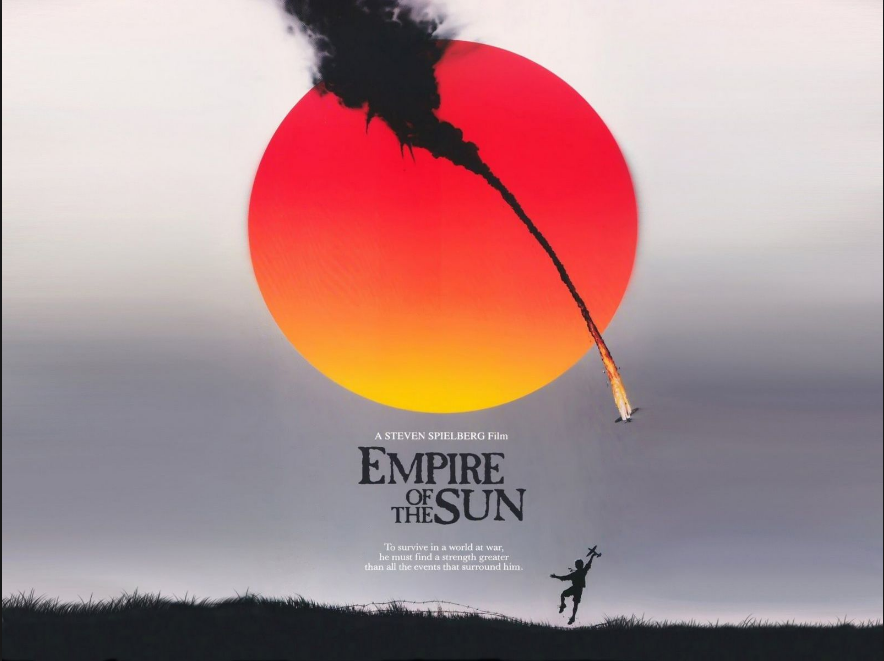SUO GAN

There are many reasons to praise Stephen Spielberg's unique genius in commercial cinema but for me few greater than his inspired use of the old 1794 Welsh lullaby 'Suo Gan' in his 1987 film adaptation of J.G Ballard's 'Empire Of The Sun'.
The music is first introduced in the opening sequence of the movie as we see coffins and funeral flowers floating just off the Shanghai Bund along the "dirty, fast moving Huangu River" during World War 2. This image is then juxtaposed with English schoolboy, Jim (Christian Bale) singing alongside his fellow choristers in Shanghai Cathedral as a vague, exotic sense of cultural dissonance seems already palpable to us. The familarity of traditional British culture in contrast with the impoverished coffin burials provides a perfect visual metaphor for the story's theme - that of all established things finally reduced to dust, material things overshadowed by the spectre of death, especially in war. The lullaby works especially well as a pre-emptive antidote to the quite frightening existential trial that Jim, our protagonist, will soon be put through and offers a much needed catharsis for both him and us throughout the film. It's perhaps ironic then that he looks bored and uncomfortable when first singing it in the cathedral scene. It's only later in the story that its precious quality and meaning becomes evident to him, culminating in what is perhaps the most iconic scene of the entire film.
'Suo Gân's' second appearance occurs over half way through the movie's running time when Jim observes a squadron of kamikaze pilots of the Zero-sen preparing to take off from the distant airfield to their final mission just beyond the perimeter fence of the Nantao camp where the young English schoolboy, without his parents, is currently detained. Saluting them as they begin to make their ascent on the runway, he starts to sing 'Suo Gân', possibly as much a hymn for their brave souls as his. This unconscious singing of Jim's of a hymn he previously seemed disinterested in is fascinating to me. I believe it says something profound about the alignment of things in our lives at the right moment in order to illuminate their true meaning. This is one such realisation for both Jim and for us and Spielberg delivers it in that unashamedly emotionally intelligent way only he can.
And so, the third and final use of the Welsh hymn is at the very end of the movie where Jim is finally re-united with his mother and his father at a displaced persons camp along with many other children and their parents. The restoring of equilibrium for Jim is now complete as 'Suo Gân' in its way has acted like a prophetic motif for him - the child resting peacefully once again with his mother.
Sleep, my darling, sleep so sweetly,
Warm and tender in my arms,
I will guard you, I will hold you,
Safe against the world's alarms.
Soon enough will come the morning,
Soon will come the dawning ray;
Now you sleep in true contentment
Till the breaking of the day.